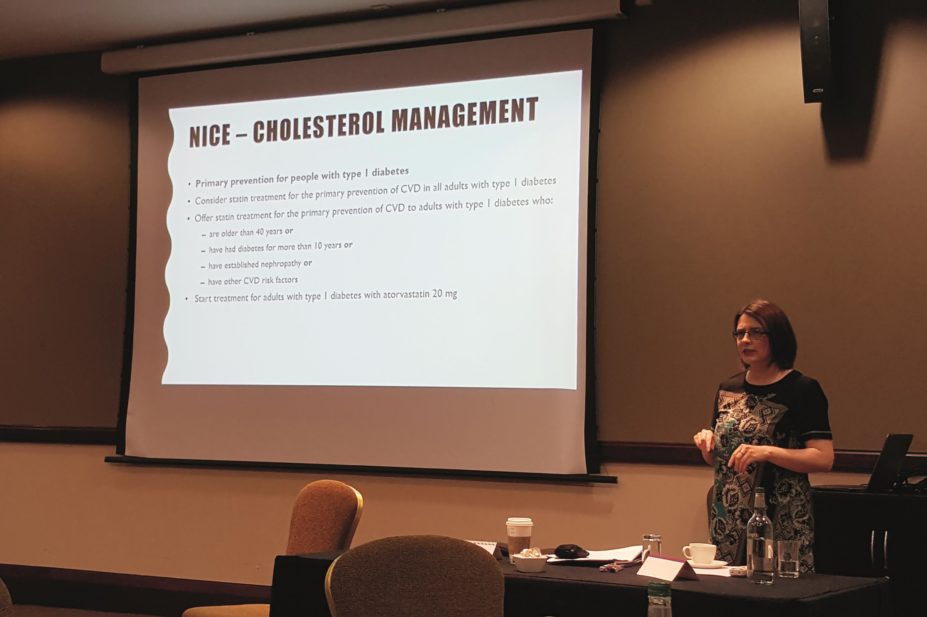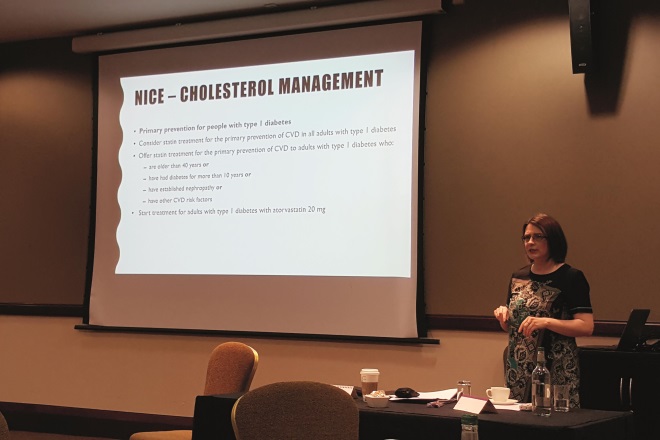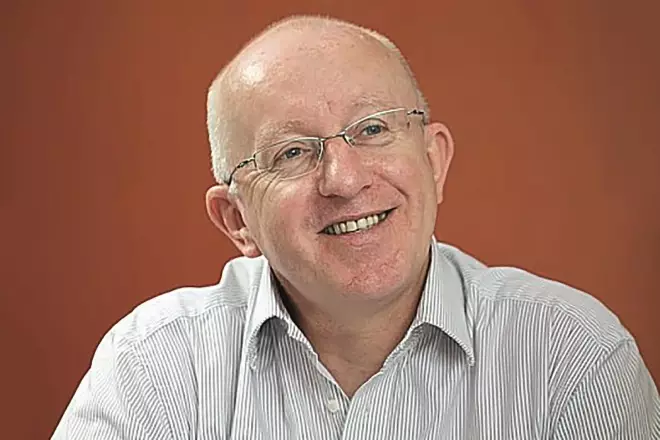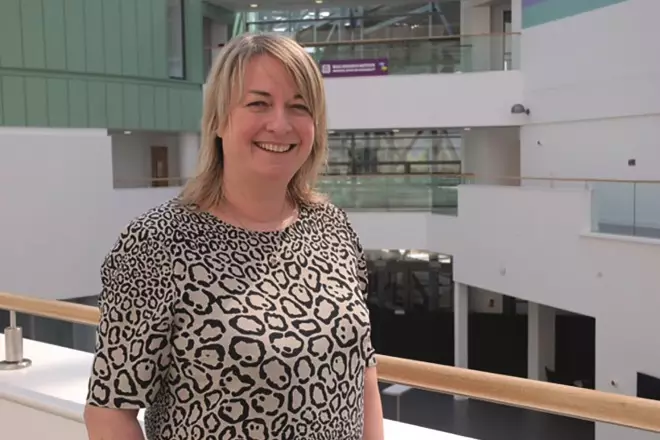
Andy Broomhead

Source: Shutterstock.com
Despite its acknowledged importance as a professional skill, leadership can often be a woolly term associated with abstract concepts such as vision and inspiration. Therefore, developing leadership skills can be a difficult task for pharmacists, particularly those who are at an earlier stage of their career and have fewer opportunities to make decisions and influence people. However, getting involved in projects, groups or events can be a useful way for individuals to improve specific leadership skills, such as organisation, evaluation and communication.
Getting started
Despite attending hundreds of events during her career, Leyla Hannbeck, chief pharmacist at the National Pharmacy Association, the British industry trade association for community pharmacies, says she never thought she would speak at one, even though she wanted to pass on her knowledge to others. Now, she believes that it is talking to audiences at face-to-face events that has improved her leadership skills and acknowledges that lack of confidence was her main issue when she first started.

Source: Courtesy of Leyla Hannbeck
Leyla Hannbeck, chief pharmacist at the National Pharmacy Association, says talking to audiences at face-to-face events has improved her leadership skills
“I was conscious that I was often one of the youngest in the room when I started going to meetings with senior, more experienced people but you learn and learn and then improve,” she says. “No doubt sometimes you will say stupid things, but keep telling yourself that everyone around you started from somewhere. We are our own strongest critics but I always ask for feedback after I have delivered something to find out how I can improve.”
Sanya Sacranie is a fourth-year pharmacy student at University College London and has recently been working as an intern for the British National Formulary (published by Pharmaceutical Press and owned by the Royal Pharmaceutical Society). She explains that she has learnt several leadership skills in this role by observing and working with her manager. “Since I was an intern, working alongside experienced professionals, I did not expect to display my own leadership skills,” she says. “Rather, I expected to learn and be guided by my experienced colleagues. However, I did anticipate that I would learn a lot about leadership from team members.”
For Sallianne Kavanagh, a pharmacist at Sheffield Teaching Hospitals NHS Foundation Trust, the pivotal moment in developing her leadership skills was becoming a member of the UK Clinical Pharmacy Association’s (UKCPA) committee, followed by being joint chair of the UKCPA diabetes and endocrinology group. This involves delivering training days, giving opinions on guidance from the National Institute of Health and Care Excellence (NICE) and encouraging others to comment and get involved.

Source: Andy Broomhead
Sallianne Kavanagh, presenting at a Sheffield-Diabetes UK patient meeting earlier in 2016, says that being part of a decision-making clinical team has increased her confidence and has encouraged her to be bolder when it comes to looking for opportunities
Delivering the message
Kavanagh also works on developing national training programmes, including the new role for pharmacists in GP practices, coordinating the national diabetes message and making decisions about what clinical pharmacists need to know.
Being part of the decision-making clinical team is daunting, she says, because the information they distribute has an important impact on pharmacists around the UK. Nonetheless, she believes that having to communicate in this way has “increased my confidence and encouraged me to be bolder when it comes to looking for opportunities and taking them when available.”
Good leaders have to know how to communicate with their audience
Sacranie, too, emphasises the value of strong communication. She reflects: “I have learnt the importance of open lines of communication and approachability between a leader and their team members. This has been essential while working as a BNF intern because the tasks we are assigned carry huge importance but, as you can imagine, they are completely different to anything we have experienced so being able to communicate openly with my manager has been essential to my progress.”
Steve Jeffers, chief executive of the Hub pharmacy, a 19-strong group of community pharmacies in the north of England, agrees. “Good leaders have to know how to communicate with their audience,” he says. In 2015, he and his fellow directors had to pitch to potential investors as the company went through a change from MedicX Pharmacy to the Hub pharmacy, which he admits was challenging.

Source: Courtesy of Steve Jeffers
Steve Jeffers, chief executive of the Hub pharmacy, says good leaders have to know how to communicate with their audience
“Having your pharmacy team at the centre of its local community is a really good sell to everybody — it works with commissioners, GPs, prospective employees and, crucially, with investors. However, in order to convince investors to fund us, we had to come up with a vision that was not just corporate speak,” Jeffers explains. “Although [eventual investor] Bridges Venture had experience in investing in other healthcare business, it had never worked with a pharmacy team before so we had to educate [the staff] about the special niche business of community pharmacy.”
Listening and engaging
Hannbeck adds: “Good leaders know how to listen. Listening to pharmacists’ issues enables me to go back and address them, for the sake of improving and supporting the profession. I love engaging with people and talking to them, and this has helped my listening skills and ability to take on feedback.”
As part of her role as co-chair, Kavanagh found out she is more diplomatic than she realised. “When you are operating as just one person, it’s OK to hold and state your own opinions, but when you are a chair you have to listen to a range of opinions within a group and then get everyone to come together with a centrally agreed message — which often takes patience and tact.”
Alison Strath, professor of community pharmacy practice at the school of pharmacy and life sciences, Robert Gordon University, explains that she works closely with the Scottish government to develop and implement new services at scale across approximately 1,200 community pharmacies in Scotland. “However, generally speaking, people don’t like change, which makes implementing new services challenging, so I recently attended a ‘demystifying quality improvement’ course,” she says.

Source: Courtesy of Alison Strath
Alison Strath says it is important to engage team members closest to the problem from the start and spend sufficient time engaging them in designing the improvement
Strath adds: “Some of the learning points from the day for me were the importance of engaging those team members closest to the problem from the start, spending sufficient time engaging them in designing the improvement and also understanding more about variation and how to measure it.”
Added value
Despite expecting to learn only from observing others as part of her internship, Sacranie actually found herself developing leadership skills of her own. She explains: “On the projects that I have been assigned, I have learnt how to delegate tasks between myself and my fellow intern based on our strengths — we come from two different universities so our skill sets are different. I have also learnt to encourage my team and motivate them towards a common goal.”
I’ve learnt a lot about how best to motivate myself and plan my pathway to where I want to be which, in turn, enables me to help other people do the same
Additionally, Sacranie believes that the position has helped her confidence improve and she has therefore become more assertive. “Being assertive in your decisions is an important part of being a leader. Furthermore, I have been setting goals and deadlines for myself and my team member, which we have collectively achieved and our manager has been pleased with. This gives me the reassurance that my approach to these new situations is working.”
Kavanagh says that being co-chair has given her the “recognition in myself and also from my peers that what I’m doing is valuable and makes a difference in the wider arena — not just to that one patient on the ward. I’ve got the confidence to stand by my skills and share my knowledge, and it has given me a forum for that as well.”
Hannbeck believes her organisational and planning skills have improved too. “I’ve learnt a lot about how best to motivate myself and plan my pathway to where I want to be which, in turn, enables me to help other people do the same.”
Future learning
Now that her confidence has increased, Kavanagh is poised to start a Health Education England leadership fellowship about safer diabetes and she now represents the profession at a parliamentary think-tank on diabetes. “All these things will add to my leadership skills and help me contribute even more in my field,” she says.
Jeffers adds that constantly learning keeps life interesting. “What we are learning from Bridges Ventures is how to collate and report information on what our business does each month to enable us to report accurately on the social impact of the Hub pharmacy.
It’s vital that you keep grounded and show your pharmacy team that you understand their concerns
“We have jointly created a ‘social impact scorecard’ detailing how many prescriptions were dispensed, medicines use reviews were carried out, new medicine services were delivered, the number of people we helped to stop smoking, how many minor ailment scheme interventions were made and the number of emergency hormonal contraceptives consultations completed,” he explains. “We were clearly able to demonstrate how these services add value to people’s health and how community pharmacies can make a valuable difference in the overall health of the communities they serve.”
Sacranie plans to focus on developing her problem-solving skills as her next steps. “It is important to recognise that things rarely run smoothly no matter how well they are planned and this is an area in which I can improve,” she notes. “I need to… learn how to adapt to unexpected situations quickly because it is important for a leader to be recognised as knowledgeable and confident.”
Staying grounded
For those who are in higher managerial positions, Jeffers advises: “It’s so easy as the chief executive of an organisation to lose touch with what’s going on at the grass roots, because there are always so many exciting things to go to — conferences in London, meetings with senior bankers — but it’s vital that you keep grounded and show your pharmacy team that you understand their concerns.”
He adds that if “your leadership decisions are detached from reality, that’s a recipe for disaster”.
More ways to improve leadership skills
The Royal Pharmaceutical Society (RPS) encourages all pharmacists and pharmaceutical scientists to develop their leadership behaviours, and has developed the Leadership Development Framework (LDF) that encapsulates the concept of an engaged, collective leadership approach through nine domains of leadership, including inspiring shared purpose and engaging the team.
Catherine Duggan, director of professional development and support at the RPS, says these leadership skills can be built by being involved in:
- A new programme of work;
- New service development or care package;
- Taking the lead on project work;
- Implementing new technology;
- Running a training session for colleagues;
- Running workshops for patients;
- Being involved in creating National Institute for Health and Care Excellence guidance;
- Sitting on a committee or board.
“What’s important is contextualising your own development and reflecting on the change in your style, as well as the delivery of the project or work,” adds Duggan. “Working on evaluations or gathering evidence that supports a programme of change requires many leadership qualities that we continue to need across all sectors: influencing, negotiating and persuading. These are useful at all stages of professional life and are required to ever greater levels as we progress through our careers.”
Reading this article counts towards your CPD
You can use the following forms to record your learning and action points from this article from Pharmaceutical Journal Publications.
Your CPD module results are stored against your account here at The Pharmaceutical Journal. You must be registered and logged into the site to do this. To review your module results, go to the ‘My Account’ tab and then ‘My CPD’.
Any training, learning or development activities that you undertake for CPD can also be recorded as evidence as part of your RPS Faculty practice-based portfolio when preparing for Faculty membership. To start your RPS Faculty journey today, access the portfolio and tools at www.rpharms.com/Faculty
If your learning was planned in advance, please click:
If your learning was spontaneous, please click:


